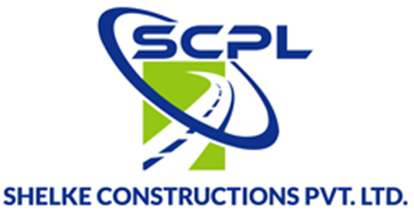In India’s booming construction sector, time is money, and ambiguity is a silent cost.
As contractors who work across varied project scales and stakeholder ecosystems, we at Shelke Constructions have come to value one element above all in the early stages of a project: contract clarity.
While design, manpower, and material logistics are critical, it’s the contract document — the agreement that governs the entire scope, cost, timelines, risks, and responsibilities — that ultimately determines how smoothly a project will progress.
The Indian Construction Landscape Is Changing Fast
The Indian construction industry is now a ₹10 lakh crore ecosystem, driven by rapid urbanisation, private investment, and government infrastructure projects. With shrinking deadlines, increased subcontracting, and complex inter-agency coordination, any misalignment in expectations or legal ambiguity can cause:
- Delays and work stoppages
- Unplanned cost escalations
- Legal disputes and arbitration
- Reputational damage and trust deficit
In our experience, most on-site disputes don’t originate from intent — they arise from unclear contracts.
What Do We Mean by “Contract Clarity”?
Contract clarity doesn’t mean using complex legal language or multiple annexures. It means having a contract that is:
- Unambiguous – Clearly states scope, exclusions, timelines, penalties, and responsibilities.
- Realistic – Based on actual workability, site conditions, and execution timelines.
- Comprehensive – Covers terms related to material specs, payment schedules, delay clauses, escalation protocols, and force majeure.
- Mutually Fair – Protects both the client and contractor through balanced risk-sharing.
Real-World Scenarios Where Clarity Saves Projects
At Shelke Constructions, we’ve handled residential, commercial, and infrastructure contracts — and across these diverse verticals, some recurring pain points emerge when contracts aren’t clear:
- Scope Creep: Vague work descriptions often lead to clients expecting additional work beyond the original scope, resulting in hidden costs that aren’t accounted for—eventually leading to dispute
- Payment Delays: Contracts that do not define clear billing stages, documentation, and timelines can lead to payment bottlenecks that affect cash flow and site progress.
- Change Orders: If the process for approving design or execution changes isn’t laid out in the contract, site-level improvisations can derail budgets.
- Labour & Safety Responsibility: Contracts that do not explicitly define liability in case of safety issues or labour conflicts create risk exposure for all parties involved.
- Material Specifications: Without defined brands, grades, or tolerances, disputes can arise during quality checks or final handovers.
- Quantity Variation in BOQ
Inaccurate quantity estimates in the Bill of Quantities (BOQ) — especially when actual quantities reduce by more than 5% — can result in significant overhead losses. Such reductions affect the contractor’s ability to recover fixed costs, leading to financial strain. In order to sustain, a buffer of ±10% must be considered in the BOQ.
- Debits and Holds in Payment:
Contractors often face arbitrary or unclear deductions and payment holds without prior notice or justified documentation. This lack of transparency disrupts cash flow and demotivates site teams, ultimately impacting progress and morale.
What We Do Differently at Shelke Constructions
We see the contract as the project’s foundation — as important as soil testing or structural design.
Here’s how we approach it:
- Pre-Execution Alignment: We invest time in aligning with clients on expectations, timelines, and possible grey areas before the first draft is signed.
- Clause-Level Understanding: Our internal team collaborates with legal consultants to ensure every clause is understandable and practical.
- Transparent Communication: We highlight possible bottlenecks upfront — like lead time for material approvals or third-party dependency risks — to avoid mid-project surprises.
- Change Management Protocols: Every change in design, rate, or schedule has a predefined, written protocol — eliminating verbal misunderstandings.
Key Contract Clauses Every Indian Project Must Prioritize
Here are five contract clauses that can save time, money, and legal trouble:
- Detailed Scope of Work Include BOQs, drawings, technical specs, and exclusions.
- Payment Milestones & Documentation Link clear deliverables to payment stages, and define required documentation (RA Bills, Site Logs, etc.)
- Time Extension Clauses Account for third-party delays, government approvals, and force majeure events.
- Defect Liability Period (DLP) Define duration, responsibilities, and nature of post-handover support.
- Dispute Resolution Mechanism Arbitration or litigation? Specify the mode, location, and language to avoid jurisdiction issues.
Final Thoughts from Shelke Constructions
In a country like India, where construction timelines are tightening and costs are rising, a strong contract is not a formality — it’s a necessity. At Shelke Constructions, we believe that a project well-contracted is a project half-delivered. It not only builds trust but also ensures smoother execution, fewer surprises, and better risk management for all involved.
Whether you’re a client, consultant, architect, or fellow contractor, our advice remains simple: Build clarity before you build concrete.

